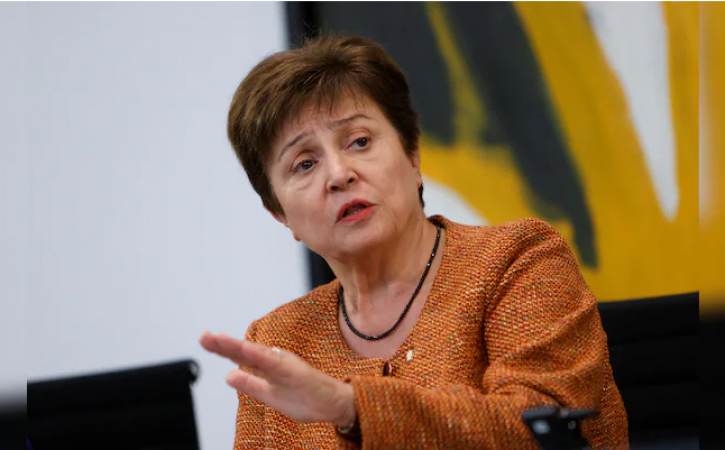
Washington: The International Monetary Fund (IMF) has issued a stark warning, indicating that the global economy is heading towards a period of deceleration due to multiple factors, with the war in Ukraine and mounting inflation being chief among them.
This cautionary stance from the IMF has prompted a downward revision of its global growth forecast for 2023, now projected at 3.6%, compared to the 3.6% growth witnessed in 2022.
Impact of the War in Ukraine
The conflict in Ukraine has catalyzed a sharp surge in energy and food prices, exerting considerable pressure on household budgets and commercial operations alike. Moreover, the war has caused significant disruptions to global supply chains, further compounding the issue of inflation.
Also Read: HCL Tech Secures Cloud Agreement with Siemens
The reverberations of the war in Ukraine are being felt on a global scale, causing a cascading effect on multiple sectors and regions. The energy sector has seen substantial price hikes, impacting not only consumers at the gas pump but also businesses that rely heavily on energy inputs. Meanwhile, soaring food prices have led to increased expenses for households and placed pressure on government initiatives to manage inflation.
The Rising Tide of Inflation
In addition to the conflict in Ukraine, the IMF is deeply concerned about the widespread inflationary pressures observed in many countries. Inflation has soared to multi-decade highs across the globe, and its pervasive impact is eroding the purchasing power of households and erasing profits for businesses.
The confluence of these factors has created a complex economic landscape, characterized by constrained growth prospects, financial instability, and policy dilemmas. To mitigate these challenges, the IMF has called on policymakers to undertake a series of measures to navigate the economic headwinds and stimulate recovery.
Also Read: India Presents PM Gatishakti National Master Plan at ADB Conference
Policy Responses to Counter the Slowdown
One of the key recommendations from the IMF is for policymakers to offer robust fiscal support to both households and businesses. This support would provide much-needed relief in the face of rising costs and economic uncertainty. However, the effectiveness of such measures hinges on their design and execution, emphasizing the importance of well-targeted and timely interventions.
Additionally, central banks may be required to adjust their monetary policy stance by raising interest rates in an effort to curb inflation. While this can be an effective tool to manage inflationary pressures, it should be executed prudently to avoid stifling economic growth.
A Confluence of Challenges
The IMF's warning adds to the already challenging backdrop facing the global economy. The COVID-19 pandemic continues to exert its influence, causing disruptions to economic activities and public health concerns. Concurrently, the deceleration of the Chinese economy, one of the world's largest, casts a considerable shadow over global growth prospects.
Given these multifaceted challenges, it is apparent that the global economy is entering a precarious period, laden with uncertainties. The war in Ukraine, spiraling inflation, and other complexities collectively contribute to the impending slowdown in growth.
The Impact of the Global Economic Slowdown
A slowdown implies that consumers may face financial constraints due to inflationary pressures eroding their purchasing power. This can result in diminished demand for goods and services, potentially leading to adverse consequences for businesses and triggering job losses.
Businesses encounter higher operational costs as they grapple with increased expenses related to energy and other essential inputs. This can ultimately result in reduced profitability and hindered investment, thereby exacerbating the economic deceleration.
Governments may experience revenue shortfalls as tax collections decline amid sluggish economic growth. Such fiscal constraints can impede the delivery of essential public services and may contribute to ballooning budget deficits.
In light of these impending challenges, policymakers are confronted with the formidable task of addressing the slowdown and bolstering economic resilience.
The IMF's cautionary statement serves as a clarion call, underscoring the urgency for policymakers worldwide to adopt effective measures to navigate the complex economic landscape.
Also Read: Oil Prices Surge Amid Mounting Supply Concerns
The global economic slowdown represents a formidable challenge with far-reaching implications. It underscores the pressing need for coordinated policy responses that prioritize economic stability and recovery.
The multifaceted nature of the challenges at hand necessitates vigilant and adaptive strategies to steer the global economy through this period of uncertainty.